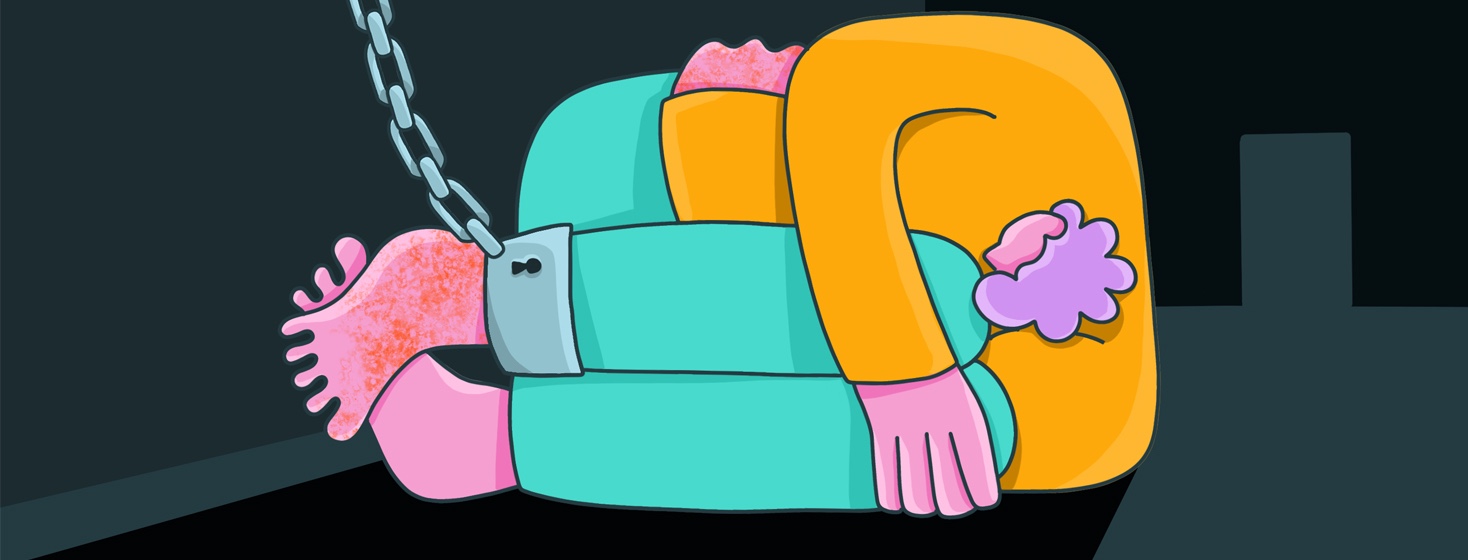How Psoriatic Arthritis Impacts My Mental Health
My arthritis affects my life in several ways. However, right up there with the pain and fatigue, is how it impacts my mental health. In this article, I explain how a vicious cycle hinders my ability to break free of the shackles of psoriatic arthritis.
We all know arthritis is an unpleasant chronic condition. There's no quick fix, plans can be ruined in a heartbeat, and the pain can make even the happiest days on paper a miserable experience.
How to prioritize mental health while living with PsA
Psoriatic arthritis compounds this with the physical elements of the disease; the rashes and unsightly finger and toenails being a test for even the most confident person on a bad day.
So it's no surprise that many of us struggle with anxiety and depression alongside our chronic illness, especially during a flare. For me, it's more the inability to do what I love, rather than how the condition presents to the outside world, but I'd be lying if I said that noticeable rashes or the use of a walking aid don't affect me.
All these elements add up. Living in pain is alone exhausting and detrimental to one's health but toss in a sprinkle of fatigue and a dollop of self-image challenges, and you have yourself a dish that even the best plate spinners would lose control of.
It starts with a high pain day
All of this amounts to a significant disadvantage in managing my condition—an unfair fight. High-pain days sap my energy and keep me up at all hours of the night, leading to a reduction in my resilience to face the next day, fight the next fight.
Tiredness and stress contribute to my skin flares. More visible rashes contribute to my stress levels and lower my confidence. Stress and worry keep me up at night, bedfellows to the pain and the cycle continues. Days become weeks, weeks become months, and I've lost six months of my life to a flare before I know it.
The vicious cycle of disappointment
What started as a high pain day, perhaps because I enjoyed myself with the family at the park too much the day prior (I mean, how dare I!), leads to a long road of uncertainty, disappointment, and discomfort that impacts everyone around you.
All because of a vicious cycle that conspires, like gravity on water stuck in the center of a spinning bucket, to keep me pinned within this nightmare. Held within a cage of elements that on their own would be manageable but together unstoppable, like a swarm of hornets encircling me in the middle of a vast field with no shelter.
A knotted unrecognizable ball of problems
A few months of this and soon, it's pretty easy to lose track of how it all started. Was it a flare? Did pain keep me awake at night first, or was it anxiety? Will my employer understand if I call in sick today with mental health problems given I initially went off with joint pain? Does anyone understand anymore? Do I?
This complexity, this cycle of influencing factors, completely hinders my ability to manage my chronic condition effectively. Like a pair of tangled headphones, I can tell you what it is: psoriatic arthritis, but I can't tell you how I got here - to Day 24 of this current flare and how it got to such a knotted unrecognizable ball of problems.
The impact on relationships
What started as a high pain day has dragged so many elements of my life into it, from work to relationships to mental health challenges that I can't give anyone the answer they want. People expect you to get sick, take some time off and improve, but in my case, the longer a flare lasts, the more time there is for these elements to play a part.
"Have you tried resting?"Yes."Have you taken anything for it?"Yes.Have you tried Yog.."Don't!
Your mental health matters
The pressure my arthritis puts on my mental health is common sense. Chronic illness and the likes of depression go hand in hand, yet you have to figure this out on your own. There is no mention of it from your Rheumatologist at diagnosis. No posters for it in the waiting room with the pictures of old, twisted hands and (in my case) age-inappropriate leaflets.
There is absolutely no collaboration between these specialist departments and local mental health services and for years, whilst I figured this out, I felt like I was different. Like I was weak or abnormal, and that's wrong. It needs to change.
I'm determined to make it change by talking about it so that others don't have to feel as lost as I was with the undiagnosed, unspoken elephant in the chronic illness waiting room: mental illness.

Join the conversation